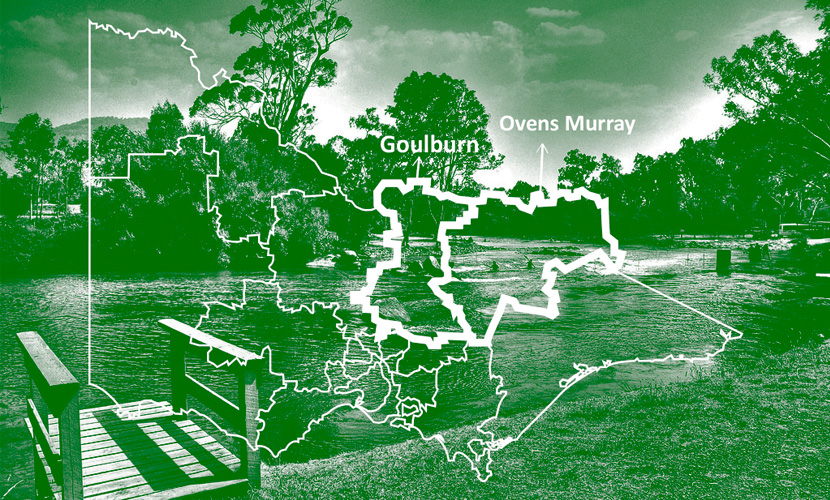Schools, councils, sporting clubs and other community groups in Victoria’s north-east are set to become world-leaders in the fight against obesity.
Obesity rates in North East Victoria are likely to decline, thanks to an innovative, whole-of-community program developed by Deakin researchers. The RESPOND program – a community-led program co-developed by Deakin University researchers – will use “systems science” to address the complex drivers of childhood obesity.
Following previous success in obesity prevention, RESPOND is being adopted at population-scale as the most effective way to achieve significant long-term changes to policy, practice and child health. The $4.1 million project will begin officially in 2019, supported by the local community and a National Health and Medical Research Council Grant.
RESPOND will target children aged from birth to 12, with a dozen local government areas in north-east Victoria taking part. It will engage 14 of the region’s health services and 116 schools – reaching more than 30,000 children in the Ovens Murray and Goulburn regions of Victoria.
Project leader Professor Steven Allender, Director of the Global Obesity Centre (GLOBE), a World Health Organisation Collaborating Centre within the Institute for Health Transformation, said the community has taken a leadership role in its bid to address a problem being experienced across the nation.
“This region was selected because the community leaders took the initiative to partner with Deakin to improve the health of their kids,” Prof Allender said.
“Providing a healthy environment for children has a positive flow-on effect to the whole community. Children who are overweight or obese are likely to remain overweight as adults, so we need to address this serious public health issue, in a preventative way, right from the start.”
[testimonial_text]There are emerging crises occurring all over the world, as countries become westernised and adopt poor eating habits. In Australia, some communities now are starting to step forward to see how they can address the situation.[/testimonial_text]
[testimonial_picture name=”Professor Steven Allender” details=”Director of the Global Obesity Centre (GLOBE)”]
 [/testimonial_picture]
[/testimonial_picture]He explained that RESPOND takes a multi-strategy approach. Acknowledging that obesity is caused by problems relating to food and activity levels, communities identify specific actions they can take to create healthier food environments and increase activity levels. It is expected that between 200 and 300 changes will be introduced in the first year.
“Our research shows that improving community capacity is the key driver to reducing levels of childhood obesity,” said Professor Allender.
“RESPOND will drive positive and practical changes from the ground up, supporting the communities to become world leaders in promoting healthy weight among children. Whether it be determining the way organisations allocate funding, removing sugar-sweetened beverages from community facilities, or establishing a childhood obesity monitoring system, the initiatives will be led by the community.”
Ms Jenny Donnelly, Executive Officer with the Upper Hume Primary Care Provider, said RESPOND will contribute to the community’s understanding of the causes of obesity in more detail.
“It’s very useful for service providers to hear what the community thinks about the issue, and for community members to consider how they can address the problem and understand it is a shared responsibility,” Ms Donnelly said.
“In the initial training of community members, in terms of broad consultation, a diverse range of communities have participated, including local governments, community health, Indigenous groups and people from other ethnic backgrounds.”
It is expected that RESPOND will expand across regional Victoria over the next five years, and pave the way for the entire nation to address the problem. Obesity is an Australian national health priority. In Victoria, for instance, 29 per cent of children aged 2 to 17 are classified as either overweight or obese.
Prof Allender emphasised that, as an NHMRC-funded project, RESPOND is a testing ground for world-leading ideas in the community. GLOBE is working with the Netherlands, Norway, the UK, Poland, Portugal and the EU to see how it can be adapted across the Globe to reverse existing trends.
The Goulburn and Ovens Murray regions together make up the Hume area, which is the focus of the RESPOND program.
Staff with the Lower Hume Primary Care Provider are excited to be involved in RESPOND.
[testimonial_text]In the past, programs were more likely to be driven by service providers, but we’ve become more aware that, to make a difference, we need to involve the people and look at the local context. It will be really exciting to look for ways to involve the community in prevention initiatives and to have data collected in primary schools, so we can see if we are being effective.[/testimonial_text]
[testimonial_picture name=”Ms Rebecca Southurst” details=”Executive Officer, Lower Hume Primary Care Provider”]
[/testimonial_picture]
Published by Deakin Research on 20 November 2018




